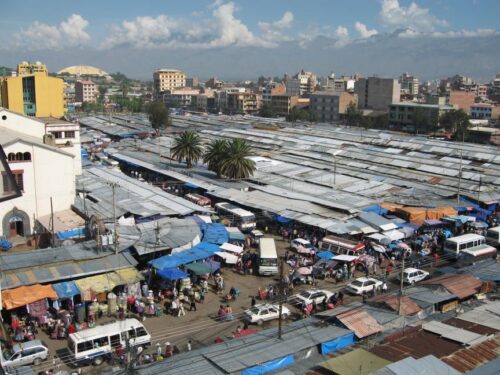EXPLORING THE INFORMAL SECTOR IN URBAN ECONOMIES
Introduction:
Urban economies across the globe are complex and diverse, often fueled by more than what meets the eye. Beyond the formal structures of businesses and industries lies an intricate web of economic activity known as the informal sector. The informal sector encompasses a range of unregistered and unregulated economic activities that are typically outside the purview of government oversight and taxation. In this article, we delve into the realm of the informal sector in urban economies, shedding light on its significance, challenges, and potential for development.
Understanding the Informal Sector:
The informal sector consists of various economic activities, including street vending, small-scale manufacturing, domestic work, waste recycling, and countless other occupations. It is characterized by a lack of formal contracts, legal protection, social security benefits, and access to credit. Despite these challenges, the informal sector plays a crucial role in urban economies, often acting as a safety net for marginalized communities, contributing to employment generation, and fulfilling the demands of the local population.
The Significance of the Informal Sector:
- Employment Generation: The informal sector is a substantial source of employment, particularly in developing countries. It provides income opportunities for individuals who may have limited access to formal education or lack the necessary skills for formal employment. In many cases, it serves as a stepping stone for individuals to acquire skills and transition into more stable and formal job opportunities.
- Economic Resilience: The informal sector demonstrates remarkable resilience during times of economic downturn. Its flexibility and adaptability enable it to withstand shocks and maintain a degree of economic stability when formal sectors struggle. This resilience is crucial in enhancing overall economic resilience at the urban level.
- Provision of Goods and Services: The informal sector fulfills an array of needs within urban areas, especially in low-income communities. Street vendors, for example, offer affordable food, clothing, and other essential items to residents who may not have access to formal retail establishments. Moreover, the informal sector often caters to niche markets and produces goods that may not be readily available in formal markets.
Challenges Faced by the Informal Sector:
While the informal sector contributes significantly to urban economies, it faces numerous challenges that hinder its growth and development:
- Lack of Legal Recognition: The informal sector operates in a legal gray area, often facing harassment and eviction due to its unregistered status. The absence of legal recognition prevents entrepreneurs and workers from accessing formal financial services, protections, and social security benefits.
- Limited Access to Resources: Informal businesses struggle to access credit, technology, and training opportunities that could enhance their productivity and competitiveness. The lack of access to resources hampers their growth potential and perpetuates a cycle of informality.
- Vulnerability and Exploitation: Workers in the informal sector are vulnerable to exploitation, low wages, and unsafe working conditions. They often lack legal protection, making them more susceptible to unfair labor practices.
Harnessing the Potential for Development:
To unlock the potential of the informal sector and maximize its contribution to urban economies, a comprehensive approach is necessary:
- Legal Recognition and Support: Governments need to acknowledge the importance of the informal sector and establish supportive policies that provide legal recognition, protect the rights of workers and entrepreneurs, and facilitate their access to financial and social services.
- Skills Training and Capacity Building: Equipping informal sector workers with the necessary skills, knowledge, and training can enhance their productivity, improve the quality of goods and services, and open up opportunities for transitioning to the formal sector.
- Access to Finance: Facilitating access to credit and financial services tailored to the needs of the informal sector can enable entrepreneurs to expand their businesses, invest in technology, and improve productivity.
- Integration and Formalization: Creating pathways for the transition from the informal to the formal sector can help in reducing the size of the informal economy. This can be achieved through simplifying registration processes, reducing administrative burdens, and providing incentives for formalization.
Conclusion:
Exploring the informal sector in urban economies reveals a dynamic and intricate landscape that plays a vital role in employment generation, economic resilience, and the provision of goods and services. By recognizing the significance of the informal sector and implementing supportive policies, urban areas can unlock its potential for sustainable development, inclusivity, and economic growth. Balancing the needs of formal and informal sectors is essential to create thriving and resilient urban economies that benefit all segments of society.


